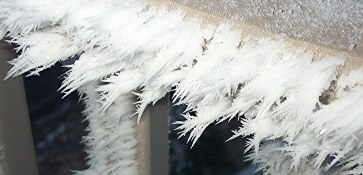Hey, you reading this. Happy New Year. (Not you, China. You'll have your chance.)
Oh, well, I guess I'm about 27 days too late for that...
Isn't it only appropriate, then, that the words relate to the New Year? Yes, I think so too.
Qualtaghs-
 Justin- A rare breed of hippo
Justin- A rare breed of hippo
Kevin- A measurement of time equivalent to how long it takes Jessie to fill her daily selfie quote
Jessie- Elephants with Cholera
Mom- A number of cattle in a newly started herd
Dad- The best fly for catching Argentinean Brown in a river
Kimmy- The Achievement of ultimate understanding of all things blue.
Some words just seem so obscure, and their definition so random, which I thought immediately about this word. Then I researched it a bit and found the true story behind it.
Qualtagh refers to the first person you meet after the New Year.
Qualtagh comes from a dialect of Gaelic known as Manx, spoken on the Isle of Man. (Pictured) The Manx language is slowly dying, despite many attempts to revive it. It is very well-documented, so we'll never fully lose it.
Why, you ask, is there possibly a word for that? Well, let me tell you a little story:
The word Qualtagh literally means, in Manx, "First Foot". It is a popular superstition that if your Qualtagh is a dark-haired man, you will have good luck for the year. Alternatively, if your Qualtagh was a female, too bad. Not-So-Good luck for you. And a red-head? The worst of luck will be upon you. Sorry.
Not only are Qualtaghs people that you meet right after the New Year, but also people that women meet immediately after leaving home after being stuck taking care of a newborn.
All of the BeeGee's were/are Manx people. Fun fact.
Velleities:
Justin- A restaurant for Jedi's
Kevin- The feeling of helplessness against overwhelming stupidity
Jessie- A leaf shaped like a foot
Mom- The unions that support Parking Valets
Dad- The bugs in software when programmers don't have enough coffee
Kimmy- The hairs on the legs of insects.
Alright. We're all guilty of it. We start on a New Year's Resolution, only to never actually make any progress on it. You know, the whole "Oh, I'm going to start going to the gym this year. I'll research gyms right now." And then, you proceed to use all your time on the internet liking pictures of cats on Facebook.
That's a Velleity. Here, I'll make a chart for you, most productive to least productive:
◄--(Starting immediately)---------------------(Procrastination)-----------------------------------------(Velleities)---►
Marketer Matt Bailey described a Velleity as such: "A desire to see something done, but not enough desire to do something about it."
Surprisingly, Velleity comes from the same word as its opposite, Volition. Both of these words come from the Latin verb velle, meaning to wish. Volition, though, comes directly from the "Me" conjugation, Volo. Benevolent also comes from the same word, meaning "well-wishing"
Oh, well, I guess I'm about 27 days too late for that...
Isn't it only appropriate, then, that the words relate to the New Year? Yes, I think so too.
Qualtaghs-
 Justin- A rare breed of hippo
Justin- A rare breed of hippoKevin- A measurement of time equivalent to how long it takes Jessie to fill her daily selfie quote
Jessie- Elephants with Cholera
Mom- A number of cattle in a newly started herd
Dad- The best fly for catching Argentinean Brown in a river
Kimmy- The Achievement of ultimate understanding of all things blue.
Some words just seem so obscure, and their definition so random, which I thought immediately about this word. Then I researched it a bit and found the true story behind it.
Qualtagh refers to the first person you meet after the New Year.
Qualtagh comes from a dialect of Gaelic known as Manx, spoken on the Isle of Man. (Pictured) The Manx language is slowly dying, despite many attempts to revive it. It is very well-documented, so we'll never fully lose it.
Why, you ask, is there possibly a word for that? Well, let me tell you a little story:
The word Qualtagh literally means, in Manx, "First Foot". It is a popular superstition that if your Qualtagh is a dark-haired man, you will have good luck for the year. Alternatively, if your Qualtagh was a female, too bad. Not-So-Good luck for you. And a red-head? The worst of luck will be upon you. Sorry.
Not only are Qualtaghs people that you meet right after the New Year, but also people that women meet immediately after leaving home after being stuck taking care of a newborn.
All of the BeeGee's were/are Manx people. Fun fact.
Velleities:
Justin- A restaurant for Jedi's
Kevin- The feeling of helplessness against overwhelming stupidity
Jessie- A leaf shaped like a foot
Mom- The unions that support Parking Valets
Dad- The bugs in software when programmers don't have enough coffee
Kimmy- The hairs on the legs of insects.
Alright. We're all guilty of it. We start on a New Year's Resolution, only to never actually make any progress on it. You know, the whole "Oh, I'm going to start going to the gym this year. I'll research gyms right now." And then, you proceed to use all your time on the internet liking pictures of cats on Facebook.
That's a Velleity. Here, I'll make a chart for you, most productive to least productive:
◄--(Starting immediately)---------------------(Procrastination)-----------------------------------------(Velleities)---►
Marketer Matt Bailey described a Velleity as such: "A desire to see something done, but not enough desire to do something about it."
Surprisingly, Velleity comes from the same word as its opposite, Volition. Both of these words come from the Latin verb velle, meaning to wish. Volition, though, comes directly from the "Me" conjugation, Volo. Benevolent also comes from the same word, meaning "well-wishing"





